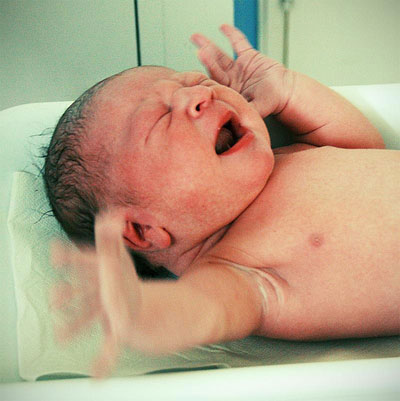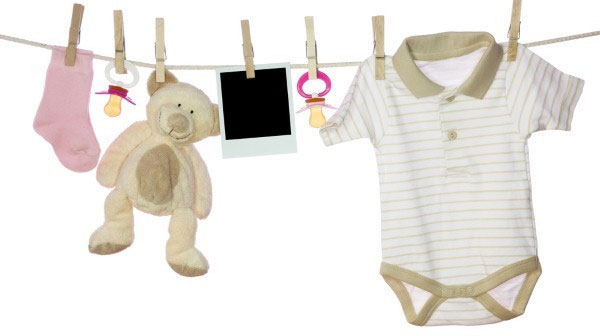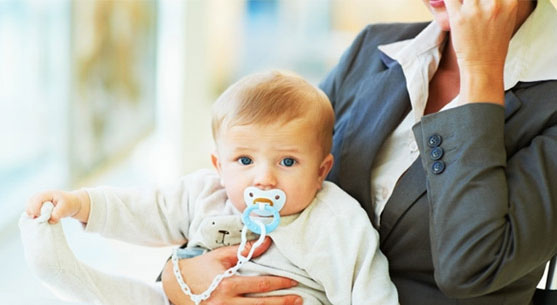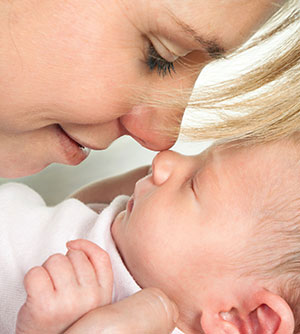A newborn baby is expected to lose weight within the first two days of his or her life. However, right care must be taken if the weight loss in babies is abnormal. Read on to find the causes of weight loss in newborns and the preventive steps for coping with weight loss in newborns. For a very long time it was believed that the main cause of initial weight loss in newborn babies was due to lack of breastmilk. Breastfeeding is without doubt the healthiest thing for a baby. In addition to breastmilk recent studies have indicated a few other factors which may be responsible for weight loss in newborn babies. In this articleCauses of Weight Loss in NewbornsNormal Extent of Weight Loss in NewbornsTaking Steps for Preventing Weight Loss in NewbornsCauses of Weight Loss in Newborns Let us have a look at some of the common causes of weight loss in newborns. IV Fluids Given to Mother - Some of the newborn babys initial weight loss may be due IV fluids given to the mother during labour. The use of IV fluids in labour may cause a large shift of the fluid from the mother to the foetus. Hence the birth weight of such babies is inflated due to excessive fluid stores. Surplus fluid loss may be there during the first few days of the infant’s birth resulting in weight loss over the normal acceptable 10% limit. Stress and Transition - Another popular theory is that all babies are born with extra weight to help them cope with the stress caused by labour and the transition to extra uterine life. Immediately after birth while learning to adapt to the external environment many infants lose weight. The Extra Fat Stores - Babies have extra fat stores at the time birth because mothers mature milk does not come in for 3-5 days. This extra store helps them tide over the initial few days easily without being fed the mature milk. Fluid Loss - Dry heat from radiant warmers and incubators are also one of the common causes of excessive fluid loss in infants which lead to weight loss in them. Normal Extent of Weight Loss in Newborns On an average weight of newborn baby will normally fall in the range of 6 and 9 lbs. Within the first two days of the baby’s birth it is expected that she will lose up to 10 percent of the weight she was when first born. 10 percent weight loss is considered to be normal. However, any weight loss over 10 percent of birth weight can be dangerous to a newborn babys health. Further investigations must be carried out to rule out the possibility of the infant suffering from any serious ailment.Taking Steps for Preventing Weight Loss in Newborns Weight loss in newborns is expected and completely normal. Hence, there is really no need to do anything to prevent weight loss provided it falls within the range of 5 and 10 percent of the original birth weight. In case if an infant loses more than 10 percent of her birth weight it may be due to her not getting enough nourishment. Strict feeding schedule must be followed for such newborn babies irrespective of whether they are being breastfed or bottle fed. It would be worthwhile for breastfeeding mothers to discuss the issue of their infant losing weight with a lactation expert to ensure that their babies are getting the correct amount of milk. To ensure that a newborn is receiving all the nourishment required for normal development she must be breastfed about every two hours or 12 times a day. Bottle fed babies on the other hand must be fed every three to four hours a day. Having a newborn baby in your life can be very challenging initially. Many parents actually find it very stressful. When new parents have to additionally deal with health issues in a newborn baby like abnormal weight loss they may experience higher levels of stress than normal. To cope with excessive stress and deal with the problem effectively it may be worthwhile to speak to other parents who may have had similar experience in the past. Getting as much rest as possible and relaxing can go a long way in coping with infant challenges.
A newborn baby is expected to lose weight within the first two days of his or her life. However, right care must be taken if the weight loss in babies is abnormal. Read on to find the causes of weight loss in newborns and the preventive steps for coping with weight loss in newborns. For a very long time it was believed that the main cause of initial weight loss in
newborn babies was due to lack of breastmilk. Breastfeeding is without doubt the healthiest thing for a baby. In addition to
breastmilk recent studies have indicated a few other factors which may be responsible for weight loss in newborn babies.
Causes of Weight Loss in Newborns
Let us have a look at some of the common causes of weight loss in newborns.
IV Fluids Given to Mother - Some of the newborn baby's initial weight loss may be due IV fluids given to the mother during labour. The use of IV fluids in labour may cause a large shift of the fluid from the mother to the foetus. Hence the
birth weight of such babies is inflated due to excessive fluid stores. Surplus fluid loss may be there during the first few days of the infant’s birth resulting in weight loss over the normal acceptable 10% limit.
Stress and Transition - Another popular theory is that all babies are born with extra weight to help them cope with the stress caused by labour and the transition to extra uterine life. Immediately after birth while learning to adapt to the external environment many infants lose weight.
The Extra Fat Stores - Babies have extra fat stores at the time birth because mother's mature milk does not come in for 3-5 days. This extra store helps them tide over the initial few days easily without being fed the mature milk.
Fluid Loss - Dry heat from radiant warmers and incubators are also one of the common causes of excessive fluid loss in infants which lead to weight loss in them.
Normal Extent of Weight Loss in Newborns
On an average weight of newborn baby will normally fall in the range of 6 and 9 lbs. Within the first two days of the baby’s birth it is expected that she will lose up to 10 percent of the weight she was when first born. 10 percent weight loss is considered to be normal. However, any weight loss over 10 percent of birth weight can be dangerous to a newborn baby's health. Further investigations must be carried out to rule out the possibility of the infant suffering from any serious ailment.
Taking Steps for Preventing Weight Loss in Newborns
Weight loss in newborns is expected and completely normal. Hence, there is really no need to do anything to prevent weight loss provided it falls within the range of 5 and 10 percent of the original birth weight.
In case if an infant loses more than 10 percent of her birth weight it may be due to her not getting enough nourishment. Strict feeding schedule must be followed for such newborn babies irrespective of whether they are being breastfed or bottle fed.
It would be worthwhile for breastfeeding mothers to discuss the issue of their infant losing weight with a lactation expert to ensure that their babies are getting the correct amount of milk. To ensure that a newborn is receiving all the nourishment required for normal development she must be breastfed about every two hours or 12 times a day. Bottle fed babies on the other hand must be fed every three to four hours a day.
Having a newborn baby in your life can be very challenging initially. Many parents actually find it very stressful. When new parents have to additionally deal with health issues in a newborn baby like abnormal weight loss they may experience higher levels of stress than normal. To cope with excessive stress and deal with the problem effectively it may be worthwhile to speak to other parents who may have had similar experience in the past. Getting as much rest as possible and relaxing can go a long way in coping with infant challenges.






























